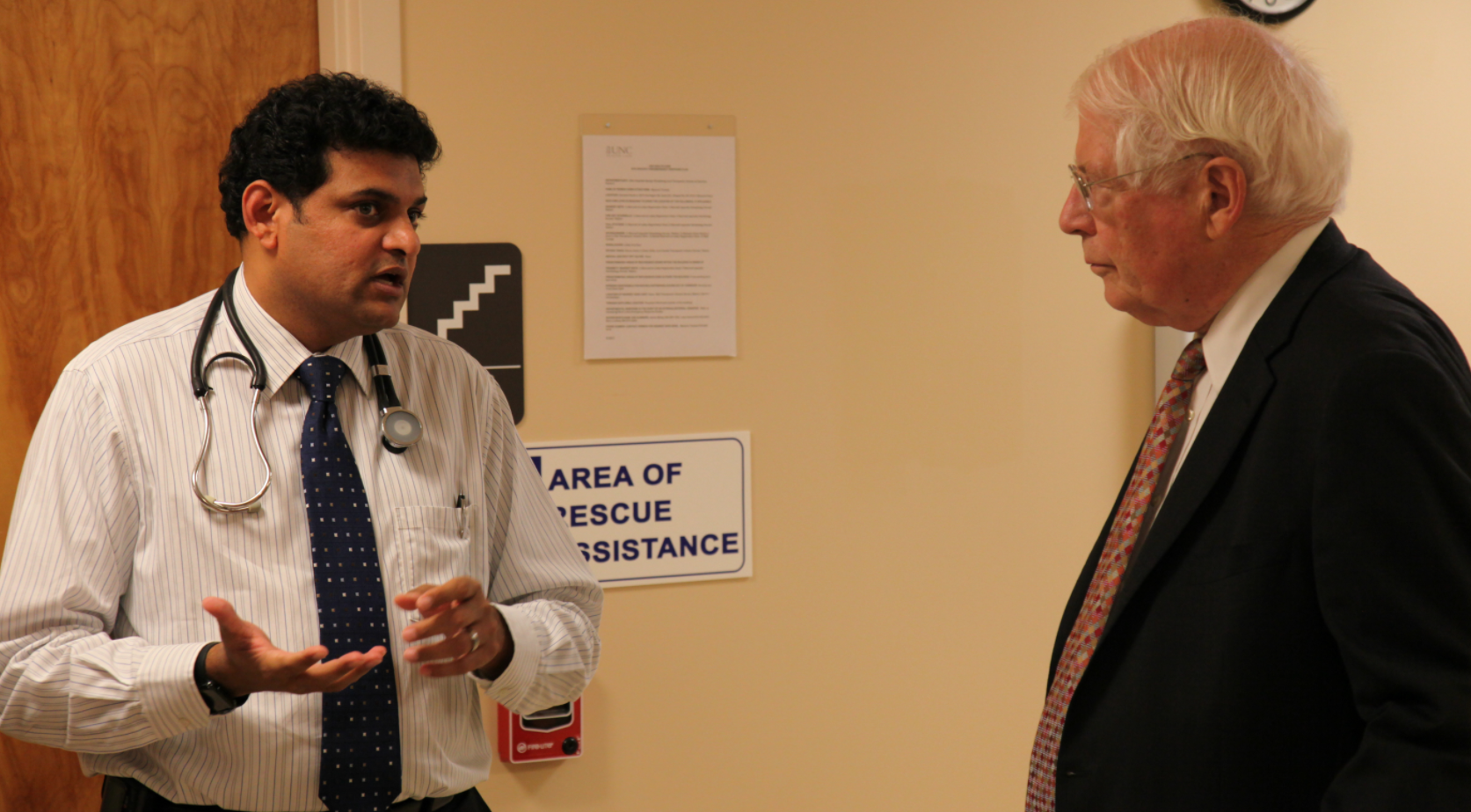The congressman was then honored with the Cure HHT’s Champion Award for his work securing funding for a multi-state pilot program that will be headquartered in Chapel Hill and led by Raj Kasthuri, MD, director of UNC’s HHT Center of Excellence. Dr. Kasthuri is also an assistant professor of medicine in the division of hematology and oncology.

(Republished from the UNC Health Care Newsroom)
UNC is home to one of the 25 Cure HHT Centers of Excellence in the United States and Canada where people with HHT disease can go for treatment. UNC’s HHT Center for Excellence is led by Raj Kasthuri, MD.
Because it is relatively rare – affecting an estimated one in 5,000 people – it is often misdiagnosed, and it can be difficult for those who are diagnosed by the disease to find treatment.
HHT (Hereditary Hemorrhagic Telangiectasia) is a cruel and unrelenting disease, affecting families for generations. While it can have seemingly mild symptoms like frequent nosebleeds, it can result in disabling and catastrophic events. This hereditary disorder creates abnormalities in blood vessels, making them fragile and thus susceptible to rupture and bleeding, which can result in lung and brain hemorrhage, stroke, and death.
In many ways the treatment and management of HHT is comparable to treatment for hemophilia, the hereditary condition in which the blood fails to coagulate. There are currently more than 130 federally funded Hemophilia Treatment Centers in the U.S. Many of these have teams of doctors and specialists such as hematologists, genetics counselors and nurse coordinators.
Kasthuri, working with Cure HHT, has proposed a pilot program in which three Hemophilia Treatment Centers would receive guidance and training to allow them to serve HHT patients as well. If successful, this could potentially expand access to care significantly for HHT patients.
All that was needed was the funding to make the pilot program a reality. Enter Congressman David Price who made securing federal funding for the pilot program one of his three top legislative priorities.
“I was inspired by the leadership of the team at UNC and Cure HHT in their efforts to leverage existing infrastructure to bring comprehensive care to an underserved community of patients,” said Rep. Price. “I’m optimistic that a successful pilot program will serve as a model for communities across the country to bring awareness and treatment to those affected by this disease.”
Thanks to Rep. Price’s efforts, funding earmarked for the program has been added to the federal budget in the form of a grant from the Centers for Disease Control and Prevention. In order to show their appreciation, Kasthuri and Cure HHT invited Rep. Price to tour the benign hematology clinic where HHT patients are treated in Chapel Hill, before honoring the congressman with an award at a ceremony at the Carolina Club on UNC campus.
At the reception, Rep. Price was able to meet with HHT patients and hear stories about how they have been affected by the disease and how programs like Dr. Kasthuri’s will help them.
Kasthuri said that this funding will serve an invaluable role in making HHT more visible – it’s estimated that only 10 percent of those living with the disease know they have it – and providing better access to treatment.
“This is a disease that can devastate families, especially if they don’t live near a facility equipped to treat it,” said Kasthuri. “The funding Rep. Price has helped us secure will be invaluable in launching a program that, we hope, will change the lives of those living with HHT.”